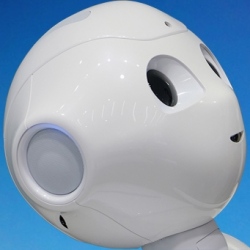
Fewer people’s jobs are likely to be destroyed by artificial intelligence and robots than has been suggested by a much-cited study, an OECD report says. An influential 2013 forecast by Oxford University said that about 47% of jobs in the US in 2010 and 35% in the UK were at "high risk" of being automated over the following 20 years.
But the OECD puts the US figure at about 10% and the UK’s at 12%. Even so, it says many more workers face their tasks significantly changing. The OECD says the previous forecasts exaggerated the impact of automation because they had relied on a broad grouping together of jobs with the same title.
Its new analysis, by contrast, takes account of the differences between jobs with the same name.
For example, the role of a carpenter can vary greatly depending on what type of projects a worker is involved in, how much autonomy they have, and the size of their employer. Some of those roles may be more vulnerable to automation than others.
The study did, however, flag up that young people could find it harder to find work in future as entry-level posts had a higher risk of automation than jobs requiring more experience.
The research was published last month, but attracted little attention until covered by the Financial Times.
The earlier study by Oxford University’s Carl Frey and Michael Osborne formed the basis for projections by the Bank of England, as well as a popular risk-prediction tool by the BBC.
It also inspired several other studies that similarly produced high double-digit estimates of the percentage of jobs facing wipe-out.
But the OECD said a variety of factors made some similarly-titled jobs less susceptible to automation than others, depending on whether:
Overall, the economic body, which monitors the economies of the world’s richer countries, predicted that 14% of jobs across 32 surveyed member nations were at high risk over the specified period. High risk was defined as there being greater than a 70% chance the role would be lost to automation. That equated to 66 million posts, it said.
